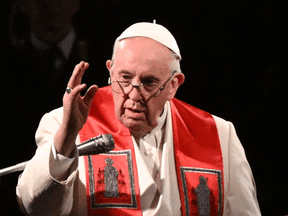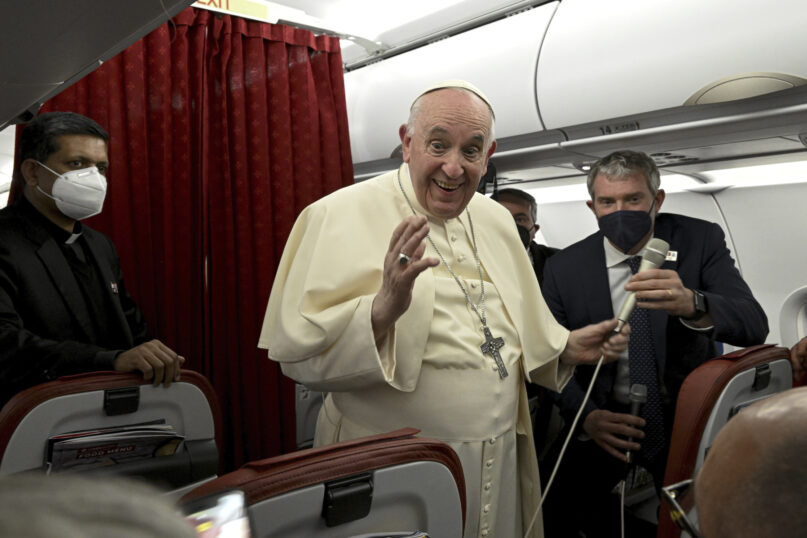The Moral Voice of Relativism
"There are people, like me, who think how he [Pope Francis] has acted so far is not enough.""There is no 'business as usual' possible right now. It cannot be like it was six months ago."Thomas Bremer, theologian, University of Munster"We keep pressing them on this issue [the Pope's interest in visiting Putin in Moscow].""I fear, however, that Putin cannot, or does not want to agree to our meeting at the moment.""But how can you not try and do whatever you can to stop the atrocities?"Pope Francis
 |
While repeatedly referring to the conflict brought to Ukraine by Russia, speaking of the atrocities, of a "cruel and senseless" war, no mention has been made of the guilty party. Not once has Pope Francis spoken of Vladimir Putin as having launched the war that has killed thousands, destroyed towns and villages and parts of cities in Ukraine. While deploring the conflict and grieving for the dead, he has stepped delicately around the obvious; this is a conflict brought to bear on Ukraine by a ruthless dictator.
Puzzling and conspicuous avoidance of mentioning, much less condemning Russian President Vladimir Putin has sent a confused message from the Vatican. Pope Francis has gone so far as to criticize sanctions imposed on Russia and Russians by the outraged West, and he speaks contemptuously of spending on defensive weaponry. But the war and naming the responsible single element, a fascist-hounding dictator on a mission to destroy Ukraine as an independent country, not a word of the illogical message targeting a nascent democracy as a neo-Nazi state.
Pope Francis, on the other hand, did not shrink from supporting a Kremlin contention that the "barking of NATO at Russia's door" represents one of the most incendiary triggers responsible for inciting Putin's war. Within the church a debate has arisen pro and con Pope Francis's approach to the war. His obvious caution evinced on Russia's behalf stemming from his wish to continue ties with the Russian Orthodox Church. The Russian Orthodox Church which has committed itself fully in support of Russia's invasion of Ukraine and the criminal activity of its troops there.
Gently chastising his Brother-in-Christ, Kiril, Pope Francis nonetheless will not condemn the Russian Orthodox Church's full-on support of what Moscow has done to mangle a neighbour's population and its future. Where is the moral authority of the most influential single church leader on the globe? Wars are "always unjust" he commented back in March, but he has not stepped toward the podium of righteousness in support of condemning a violent aggression foisted upon an innocent population.
His relations with the Ukrainian Orthodox Church versus the Russian Orthodox Church, both clearly at odds with the fundamentals of human rights and dignity accorded all to live their lives as they see fit, in a manner that most closely reflects their culture and their values, are tainted with the self-interest of churchly harmony; attempts to re-establish that condition now badly frayed. His obvious hesitation to point out the obvious from the lips of moral influence serves to reduce his stature.
He refused to commit to an agreement that under the circumstances of a nation hard pressed to defend itself from violence posed by an aggressive neighbour, the use of defensive weapons is a recognized right. When asked specifically, he was able to muster only a wan "I don't know", turning instead to decrying the manufacture and sale of weapons of destruction.His uncertainty under other, less pressing conditions would mark him as human. Under the current conditions of a violent war, he marks himself as a moral equivocator.
 |
| Pope Francis greets journalists aboard the papal plane during the flight back to Rome at the end of his two-day apostolic visit to Malta, Sunday, April 3, 2022. (Ciro Fusco /Pool photo via AP) |
Labels: Pope Francis, Russian Invasion of Ukraine, Shepherd's Failings, Vatican

<< Home